July 11 stands as one of history’s most eventful days, witnessing the rise and fall of empires, groundbreaking discoveries, and moments that shaped our modern world across centuries of human achievement.

Politics and Government Events on July 11
1921 – Former President William Howard Taft Becomes Chief Justice
William Howard Taft made history by becoming the only American to serve as both President and Chief Justice of the Supreme Court. His swearing-in as the 10th Chief Justice established an unprecedented dual legacy in American governance.
This remarkable achievement demonstrated the unique career path of a man who had previously occupied the nation’s highest executive office. Taft’s judicial appointment marked the culmination of a distinguished public service career spanning multiple branches of government.
1940 – Vichy France Regime Formally Established
Philippe Pétain assumed leadership as Chief of the French State, establishing the collaborationist Vichy regime during World War II. This puppet government fundamentally altered France’s political landscape under Nazi occupation.
The regime’s formation represented a dramatic shift from the Third Republic to authoritarian rule. Pétain’s government would become synonymous with collaboration and would deeply divide French society for generations.
1960 – France Grants Independence to Three African Colonies
France legislated independence for Dahomey, Upper Volta, and Niger, marking a pivotal moment in African decolonization. These legislative acts formally ended decades of French colonial administration across West Africa.
The simultaneous independence of these three territories reflected the broader wave of decolonization sweeping the continent. Each nation would face unique challenges in establishing their sovereign governments and national identities.
1960 – Katanga Province Declares Independence from Congo
The mineral-rich State of Katanga broke away from the newly independent Democratic Republic of the Congo, triggering the Congo Crisis. This secession attempt involved complex international interests and abundant natural resources.
The breakaway province’s declaration intensified Cold War tensions in Africa and drew international intervention. The crisis would reshape Central African politics and highlight the challenges facing newly independent African nations.
1920 – East Prussian Plebiscite Results Announced
The local population of East Prussia voted overwhelmingly to remain part of Weimar Germany rather than join Poland. This democratic referendum demonstrated the complex ethnic and national loyalties in post-World War I Europe.
The plebiscite results reinforced German territorial integrity in a strategically important region. The vote reflected the residents’ preference for German governance despite the region’s contested history and mixed population.
Military and Naval History on July 11
1914 – USS Nevada Launched as First Standard-Type Battleship
The US Navy launched the USS Nevada, marking the beginning of the “standard-type” battleship era in American naval warfare. This revolutionary design established new paradigms for battleship construction and naval strategy.
The Nevada’s launch represented a significant advancement in American naval technology and firepower. Its innovative design features would influence battleship construction for the next two decades and enhance American naval supremacy.
1943 – Allied Forces Face Counterattack in Sicily
German and Italian troops launched a determined counterattack against Allied invasion forces in Sicily during World War II. This military action tested the resolve and tactical capabilities of both Allied and Axis forces.
The counteroffensive represented desperate attempts by Axis powers to halt Allied progress in the Mediterranean theater. The battle’s outcome would significantly influence the subsequent Italian campaign and overall European strategy.
1921 – Irish War of Independence Truce Takes Effect
A formal truce ended active hostilities in the Irish War of Independence, providing respite from years of guerrilla warfare. This ceasefire created opportunities for political negotiations between Irish republicans and British authorities.
The truce marked a crucial turning point in Irish-British relations and paved the way for eventual independence negotiations. Both sides recognized the need for political solutions to replace military confrontation.
1921 – Red Army Establishes Mongolian People’s Republic
The Red Army captured Mongolia from White Army forces and established the Mongolian People’s Republic, extending Soviet influence into Central Asia. This military victory aligned Mongolia with communist ideology and Soviet geopolitical interests.
The conquest transformed Mongolia from a traditional society into a Soviet satellite state. The new republic would remain under Soviet influence for decades, fundamentally altering Mongolian culture and governance.
Science and Discovery Milestones on July 11
1962 – First Transatlantic Satellite Television Transmission
Scientists achieved the first successful transatlantic satellite television transmission, revolutionizing global communications technology. This breakthrough demonstrated the practical applications of satellite technology for mass media distribution.
The transmission marked the beginning of the global television age and international broadcast sharing. This technological achievement would transform news reporting, entertainment, and cultural exchange worldwide.
1962 – NASA Announces Lunar Orbit Rendezvous Strategy
NASA announced its decision to use lunar orbit rendezvous as the method for landing astronauts on the Moon and returning them safely to Earth. This strategic choice represented a crucial milestone in Project Apollo’s development.
The announcement resolved months of technical debates and established the mission architecture for lunar exploration. This decision would prove instrumental in achieving the successful Moon landing seven years later.
1979 – Skylab Space Station Destroyed During Reentry

America’s first space station, Skylab, was destroyed as it reentered Earth’s atmosphere over the Indian Ocean, ending its orbital mission. The controlled reentry marked the conclusion of an important chapter in American space exploration.
Skylab’s destruction represented both an ending and a beginning for American space station programs. The lessons learned from this mission would inform future space station designs and international cooperation efforts.
1934 – First Human-Powered Aircraft Flight in Germany
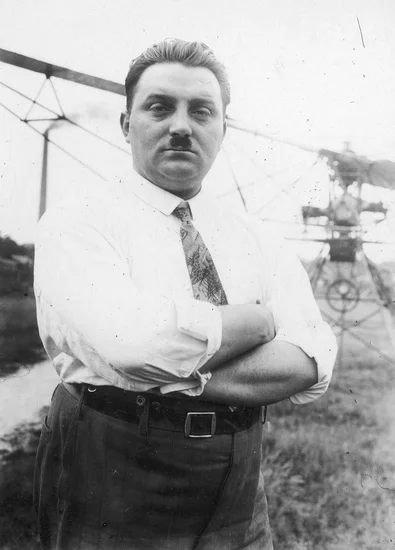
Engelbert Zaschka successfully flew his human-powered aircraft approximately 20 meters at Berlin Tempelhof Airport without assisted takeoff. This achievement demonstrated the feasibility of human-powered flight and advanced aeronautical engineering.
The flight represented a remarkable fusion of physical endurance and mechanical engineering innovation. Zaschka’s experiment contributed valuable data to the field of alternative aviation technologies and sustainable flight methods.
Cultural and Arts Events on July 11
1922 – Hollywood Bowl Opens to Public

The iconic Hollywood Bowl opened its doors, establishing itself as one of America’s premier outdoor concert venues. This architectural marvel would become synonymous with Los Angeles entertainment culture and classical music performance.
The venue’s unique design and acoustic properties created an intimate atmosphere for large-scale performances. The Hollywood Bowl would host countless legendary artists and become a cultural landmark representing American artistic achievement.
1960 – To Kill a Mockingbird First Published

Harper Lee’s masterpiece “To Kill a Mockingbird” was first published in the United States, introducing readers to one of literature’s most powerful examinations of racial injustice. The novel immediately captured public attention and critical acclaim.
This literary work would become a cornerstone of American literature and social consciousness. The book’s themes of moral courage and human dignity resonated with readers during the civil rights movement and beyond.
1937 – Composer George Gershwin Dies
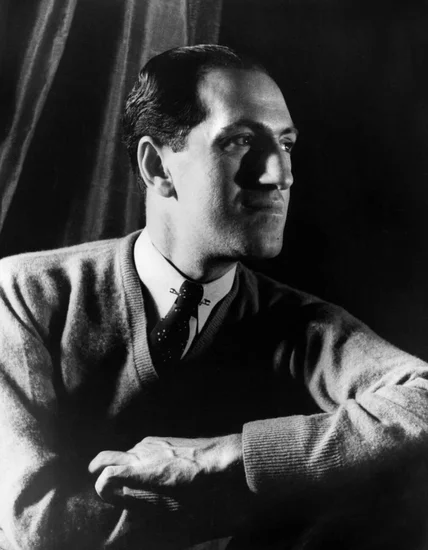
George Gershwin, the brilliant American composer and pianist, passed away at age 38, leaving behind an extraordinary musical legacy. His innovative fusion of classical and popular music revolutionized American composition.
Gershwin’s untimely death deprived the world of a musical genius who bridged high and popular culture. His compositions like “Rhapsody in Blue” and “Porgy and Bess” would continue influencing musicians for generations.
1914 – Babe Ruth’s Major League Baseball Debut

George Herman “Babe” Ruth made his professional debut in Major League Baseball, beginning a career that would transform America’s national pastime. His entrance into professional baseball marked the start of a legendary sporting career.
Ruth’s debut represented the beginning of a new era in baseball entertainment and athletic achievement. His subsequent career would establish him as one of America’s most celebrated sports figures and cultural icons.
Religious and Social Events on July 11
1977 – Martin Luther King Jr. Receives Presidential Medal of Freedom
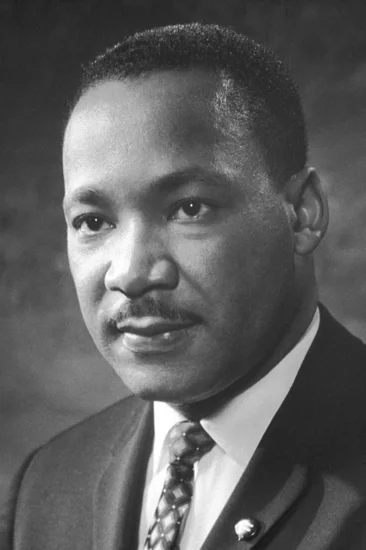
Martin Luther King Jr., assassinated in 1968, was posthumously awarded the Presidential Medal of Freedom, America’s highest civilian honor. This recognition acknowledged his extraordinary contributions to civil rights and social justice.
The award ceremony honored King’s legacy of nonviolent resistance and his transformative impact on American society. His posthumous recognition reinforced the enduring importance of his message and moral leadership.
1919 – Netherlands Establishes Eight-Hour Work Day
The Netherlands legally established the eight-hour work day and free Sunday for workers, advancing labor rights and social welfare. This progressive legislation improved working conditions and recognized workers’ rights to rest and leisure.
The law represented a significant victory for labor movements and social reformers throughout Europe. This legislative achievement would influence labor policies across the continent and improve workers’ quality of life.
1947 – Exodus 1947 Departs for Palestine
The ship Exodus 1947 departed France carrying Jewish refugees seeking to reach Palestine, becoming a symbol of post-Holocaust Jewish determination. This voyage represented the desperate desire of Holocaust survivors to establish new lives in their ancestral homeland.
The ship’s journey would capture international attention and highlight the plight of displaced Jewish populations. The Exodus story became emblematic of the struggle for Jewish statehood and refugee rights.
Business and Economic Events on July 11
1950 – Pakistan Joins International Financial Institutions
Pakistan officially joined the International Monetary Fund and the International Bank, integrating the newly independent nation into the global financial system. This membership marked Pakistan’s formal entry into international economic cooperation.
The country’s admission to these institutions provided access to development funding and technical assistance. This integration would prove crucial for Pakistan’s economic development and international trade relationships.
1971 – Chile Completes Copper Mine Nationalization
Chile completed the nationalization of all major copper mines, asserting state control over the country’s most valuable natural resource. This economic transformation represented a fundamental shift in Chile’s resource management and national sovereignty.
The nationalization process consolidated government control over copper revenues and reduced foreign corporate influence. This policy change would significantly impact Chile’s economic development and international trade relationships.
1972 – World Chess Championship Begins
The first game of the World Chess Championship between challenger Bobby Fischer and defending champion Boris Spassky commenced, capturing global attention during the Cold War. This match transcended sports to become a symbol of American-Soviet competition.
The championship represented more than a chess match; it embodied Cold War tensions and intellectual rivalry between superpowers. Fischer’s participation energized American interest in chess and transformed the game’s popular appeal.
Transportation and Infrastructure on July 11
1936 – Triborough Bridge Opens in New York City

The Triborough Bridge opened to traffic, connecting Manhattan, Queens, and the Bronx in a massive infrastructure achievement. This engineering marvel improved transportation efficiency and urban connectivity throughout New York City.
The bridge’s completion represented a triumph of Depression-era public works projects and urban planning. This infrastructure development would facilitate economic growth and improve quality of life for millions of New Yorkers.
1972 – Varig Flight 820 Crashes Near Paris
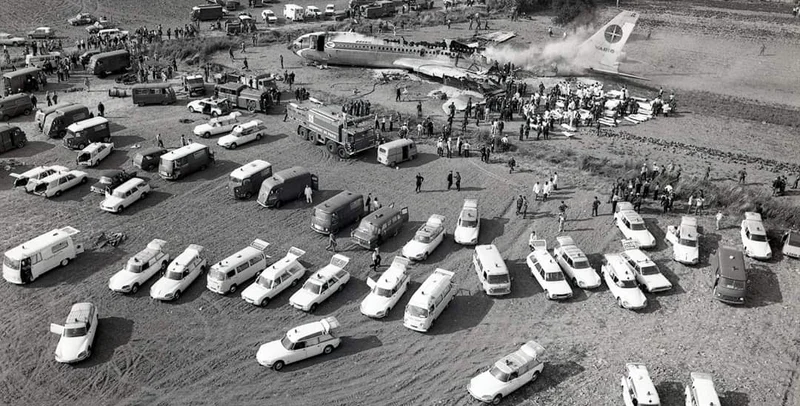
Varig Flight 820 crashed near Paris while approaching Orly Airport, killing 123 of 134 passengers and crew members. This tragic accident prompted significant changes in aviation safety regulations and emergency procedures.
The crash investigation revealed critical safety deficiencies that led to new regulations banning smoking in airplane lavatories. This disaster contributed to improved aviation safety standards and passenger protection measures worldwide.
1978 – Los Alfaques Disaster in Spain
A truck carrying liquid gas crashed and exploded at a coastal campsite in Tarragona, Spain, killing 216 tourists in a devastating industrial accident. This tragedy highlighted the dangers of transporting hazardous materials through populated areas.
The disaster prompted stricter regulations for hazardous material transportation and emergency response procedures. The accident’s scale and impact led to improved safety protocols for chemical transportation throughout Europe.
Sports and Recreation on July 11
1982 – Italy Wins FIFA World Cup
Italy’s national football team defeated West Germany at Santiago Bernabéu Stadium to capture the 1982 FIFA World Cup championship. This victory marked Italy’s third World Cup title and demonstrated their tactical excellence on football’s biggest stage.
The championship game showcased Italy’s defensive prowess and tactical discipline against a formidable German team. This triumph elevated Italian football’s international reputation and celebrated the nation’s sporting achievements.
2010 – Spain Captures First FIFA World Cup Title
Spain defeated the Netherlands in Johannesburg to win their first FIFA World Cup championship, culminating years of near-misses in major tournaments. This historic victory established Spain as football’s premier national team.
The championship represented the pinnacle of Spanish football’s golden generation and their distinctive playing style. Spain’s triumph marked the end of their major tournament drought and established their football legacy.
1924 – Eric Liddell Wins Olympic Gold in 400 Meters

Eric Liddell captured gold in the 400-meter race at the 1924 Paris Olympics after refusing to compete in his preferred 100-meter event on Sunday. His principled stand demonstrated the intersection of athletic excellence and religious conviction.
Liddell’s victory became legendary not just for his athletic achievement but for his moral courage. His story would inspire countless athletes and demonstrate that personal principles could coexist with competitive success.
Notable Births on July 11
1920 – Yul Brynner Born

Yul Brynner was born in Russia, destined to become one of Hollywood’s most distinctive leading men. His exotic appearance and commanding presence would captivate audiences worldwide and establish him as a major film star.
Brynner’s career would span stage and screen, with his portrayal of the King of Siam becoming his most iconic role. His unique charisma and bald head became his trademark, making him instantly recognizable to global audiences.
1934 – Giorgio Armani Born
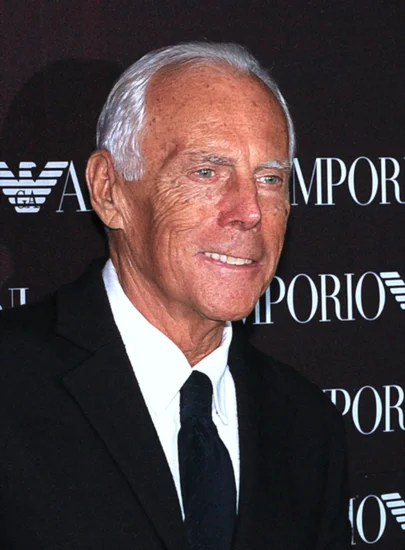
Giorgio Armani entered the world in Italy, beginning a life that would revolutionize fashion and establish one of the world’s most recognizable luxury brands. His innovative designs would redefine elegance and sophistication in clothing.
Armani’s career would transform him from a medical student to a global fashion icon and business empire builder. His minimalist aesthetic and impeccable tailoring would influence fashion trends for decades.
1959 – Richie Sambora Born

Richie Sambora was born in America, destined to become one of rock music’s most celebrated guitarists and songwriters. His musical talents would help define the sound of 1980s rock music and arena performances.
Sambora’s career with Bon Jovi would establish him as a guitar virtuoso and prolific songwriter. His distinctive playing style and stage presence contributed to the band’s massive commercial success and cultural impact.
1959 – Suzanne Vega Born

Suzanne Vega was born in America, beginning a life that would produce some of folk music’s most thoughtful and poetic compositions. Her intimate songwriting style would influence a generation of singer-songwriters.
Vega’s career would bridge folk music and popular culture, bringing literary sensibility to contemporary music. Her innovative approach to songwriting would earn critical acclaim and establish her as a distinctive artistic voice.
1930 – Harold Bloom Born

Harold Bloom was born in America, destined to become one of literature’s most influential and controversial critics. His provocative theories about literary canon and influence would reshape academic literary studies.
Bloom’s career would span decades of teaching and writing, establishing him as a formidable intellectual presence. His passionate advocacy for literary excellence would inspire countless students and readers worldwide.
Notable Deaths on July 11
1937 – George Gershwin Dies
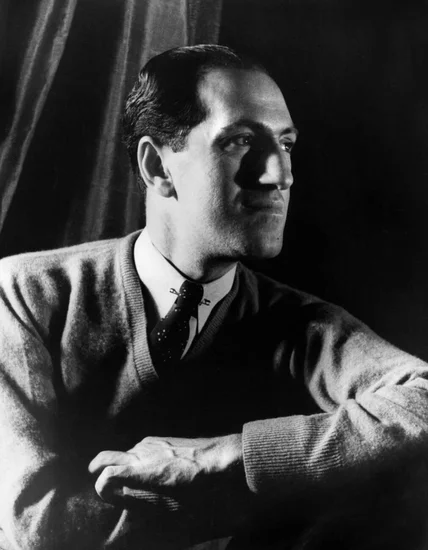
George Gershwin, the brilliant American composer and pianist, passed away at age 38, leaving behind an extraordinary musical legacy. His untimely death shocked the entertainment world and deprived music of a revolutionary talent.
Gershwin’s contributions to American music included groundbreaking compositions that bridged classical and popular genres. His works like “Rhapsody in Blue” and “Porgy and Bess” would continue influencing musicians for generations.
1989 – Laurence Olivier Dies

Laurence Olivier, the legendary English actor, director, and producer, passed away after a distinguished career spanning stage and screen. His death marked the end of an era in British theater and international cinema.
Olivier’s performances established him as one of history’s greatest actors, particularly renowned for his Shakespearean roles. His contributions to theater and film earned him numerous honors and established his lasting artistic legacy.
2007 – Lady Bird Johnson Dies

Lady Bird Johnson, the 43rd First Lady of the United States and environmental advocate, passed away after a lifetime of public service. Her death marked the loss of a pioneering figure in American conservation and civic engagement.
Johnson’s legacy included her passionate advocacy for environmental beautification and her influential role during her husband’s presidency. Her contributions to American society extended far beyond her traditional First Lady duties.
2015 – Satoru Iwata Dies

Satoru Iwata, the beloved Japanese video game programmer and Nintendo president, passed away after transforming the gaming industry. His death shocked the gaming community and marked the end of an innovative era in interactive entertainment.
Iwata’s leadership at Nintendo produced revolutionary gaming consoles and established him as a visionary in the industry. His passion for gaming and direct communication with fans made him a beloved figure worldwide.
2024 – Shelley Duvall Dies

Shelley Duvall, the distinctive American actress known for her unique screen presence and memorable performances, passed away after a career spanning several decades. Her death marked the loss of a truly original talent in American cinema.
Duvall’s collaborations with director Robert Altman and her iconic role in “The Shining” established her as a memorable character actress. Her unconventional beauty and naturalistic acting style made her a beloved figure in independent cinema.
Holidays and Observances on July 11
World Population Day
World Population Day serves as an international observance focusing on global population issues and demographic challenges. This United Nations-designated day raises awareness about population growth, sustainability, and reproductive health worldwide.
The observance encourages global dialogue about population policies, women’s rights, and sustainable development. Communities worldwide participate in educational activities and advocacy campaigns addressing demographic challenges and human rights issues.
Day of the Flemish Community

The Flemish Community of Belgium celebrates this regional holiday honoring their distinct cultural identity and linguistic heritage. This observance strengthens community bonds and celebrates Flemish contributions to Belgian society.
The celebration includes cultural events, traditional performances, and community gatherings throughout Flanders. This regional holiday reinforces the importance of linguistic diversity and cultural preservation within the Belgian federal system.
Gospel Day in Kiribati
Kiribati observes Gospel Day as a national celebration of Christian faith and its impact on island culture. This religious holiday reflects the deep spiritual traditions that have shaped Kiribati society and cultural identity.
The observance includes church services, community gatherings, and cultural performances celebrating Christian heritage. This holiday demonstrates the continuing importance of religious faith in Pacific Island communities and cultural preservation.
